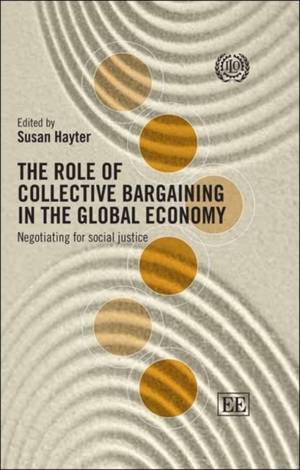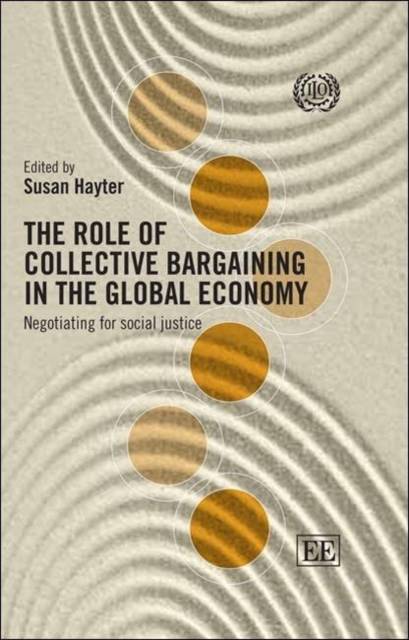
- Retrait gratuit dans votre magasin Club
- 7.000.000 titres dans notre catalogue
- Payer en toute sécurité
- Toujours un magasin près de chez vous
- Retrait gratuit dans votre magasin Club
- 7.000.0000 titres dans notre catalogue
- Payer en toute sécurité
- Toujours un magasin près de chez vous
The Role of Collective Bargaining in the Global Economy
Negotiating for Social Justice
International Labour OfficeDescription
Participation in the global economy can contribute to growth and development, but as the recent financial crisis demonstrated, such participation can also threaten employment, wages, and labor standards. This volume examines the role that collective bargaining plays in ensuring that participation in the global economy is balanced, fair, and just.
Collective bargaining is often seen as either an impediment to the smooth functioning of markets or as ineffective. This volume focuses on the other side of the story and demonstrates the positive contribution that collective bargaining can make to both economic and social goals. No one size fits all, and the various contributors examine how this fundamental principle and right at work is realized in different country settings and how its practice can be reinforced across borders. The volume also highlights the numerous challenges in this regard and the critically important role that governments play in rebalancing bargaining power in a global economy.
Susan Hayter has put together a first-rate set of authors and chapters on the positive role collective bargaining and employee voice have to play in the global economy of the twenty-first century.--Bruce Kaufman, Georgia State University
Spécifications
Parties prenantes
- Auteur(s) :
- Editeur:
Contenu
- Nombre de pages :
- 326
- Langue:
- Anglais
Caractéristiques
- EAN:
- 9789221240990
- Date de parution :
- 25-07-11
- Format:
- Livre broché
- Format numérique:
- Trade paperback (VS)
- Dimensions :
- 152 mm x 229 mm
- Poids :
- 510 g

Les avis
Nous publions uniquement les avis qui respectent les conditions requises. Consultez nos conditions pour les avis.






